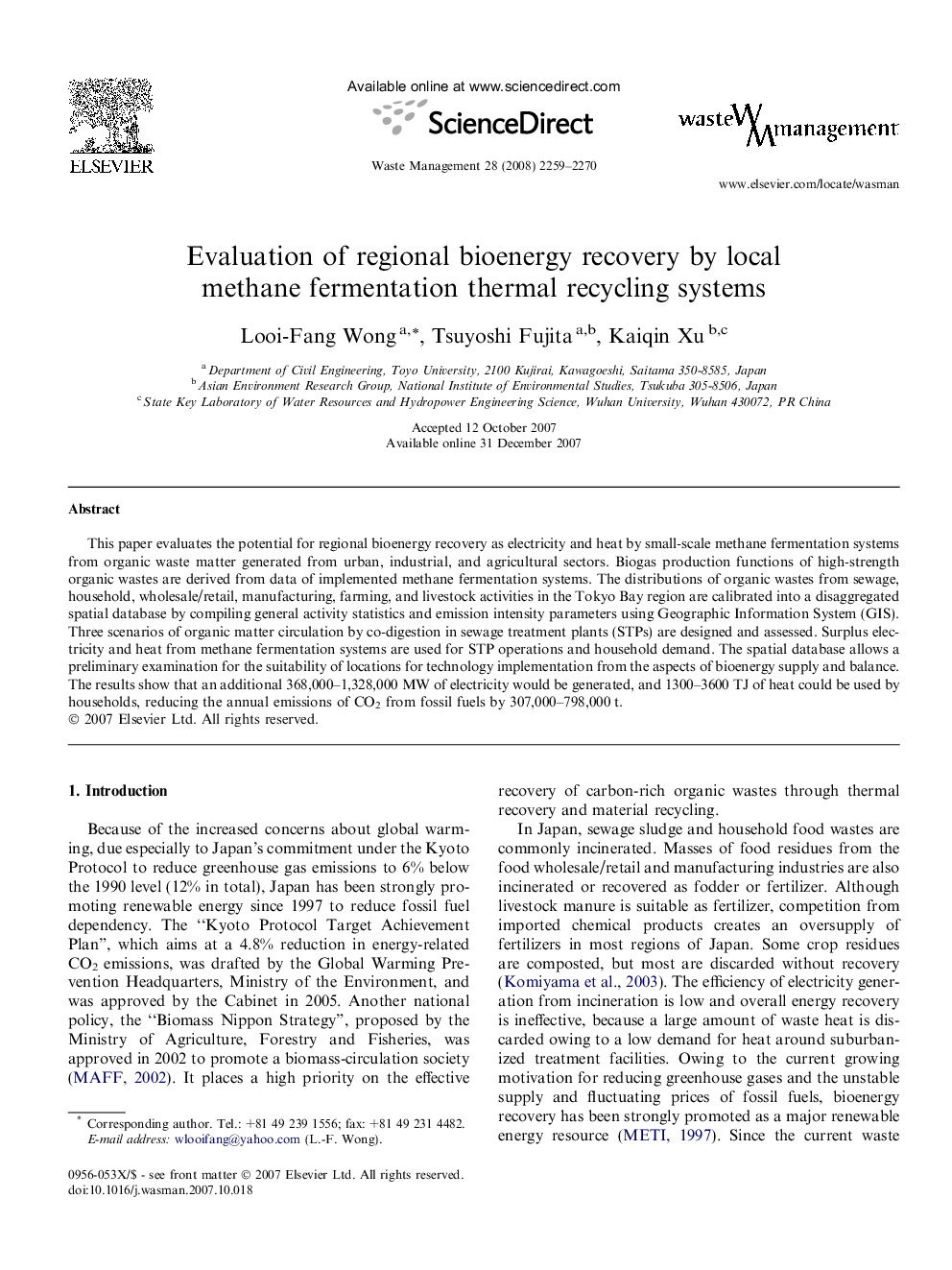| Article ID | Journal | Published Year | Pages | File Type |
|---|---|---|---|---|
| 4473488 | Waste Management | 2008 | 12 Pages |
This paper evaluates the potential for regional bioenergy recovery as electricity and heat by small-scale methane fermentation systems from organic waste matter generated from urban, industrial, and agricultural sectors. Biogas production functions of high-strength organic wastes are derived from data of implemented methane fermentation systems. The distributions of organic wastes from sewage, household, wholesale/retail, manufacturing, farming, and livestock activities in the Tokyo Bay region are calibrated into a disaggregated spatial database by compiling general activity statistics and emission intensity parameters using Geographic Information System (GIS). Three scenarios of organic matter circulation by co-digestion in sewage treatment plants (STPs) are designed and assessed. Surplus electricity and heat from methane fermentation systems are used for STP operations and household demand. The spatial database allows a preliminary examination for the suitability of locations for technology implementation from the aspects of bioenergy supply and balance. The results show that an additional 368,000–1,328,000 MW of electricity would be generated, and 1300–3600 TJ of heat could be used by households, reducing the annual emissions of CO2 from fossil fuels by 307,000–798,000 t.
